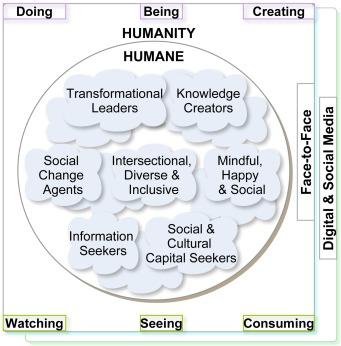Unlocking the Power of Parental Involvement in Social-Emotional Learning: Key Strategies for Success
In today’s fast-paced world, academic excellence is not the only predictor of a child’s success.Equally crucial is a child’s ability to recognize and manage emotions,build positive relationships,and make responsible decisions. this is were social-emotional learning (SEL) plays a transformative role. But did you know that parental involvement in social-emotional learning magnifies its impact exponentially? Unlocking this synergy is essential for nurturing empathetic, resilient, and well-rounded individuals.
What Is Social-Emotional Learning and Why Does It Matter?
Social-emotional learning (SEL) refers to the process through which children (and adults) understand and manage emotions, set positive goals, show empathy for others, maintain positive relationships, and make responsible decisions. SEL, as promoted by frameworks like CASEL, encompasses five core competencies:
- Self-Awareness
- Self-Management
- Social Awareness
- Relationship skills
- Responsible Decision-Making
While schools implement SEL programs, the full impact is realized only when parents actively participate—bridging learning between school and home, reinforcing key concepts, and modeling SEL behaviors daily.
The Benefits of Parental involvement in Social-Emotional Learning
When parents engage fully in SEL initiatives, children experience numerous positive outcomes both academically and emotionally. Let’s break down some of the proven benefits:
- Improved Academic Performance: A supportive emotional environment at home encourages better concentration, motivation, and performance in school.
- Stronger Relationships: Children learn effective communication and empathy skills by observing and practicing with their families.
- Enhanced Resilience: With open channels of communication, children feel safer sharing emotions and coping with challenges.
- Reduced Behavioral Issues: Proactive SEL involvement helps identify early signs of behavioral struggles and address them constructively.
- Greater Emotional Intelligence: Kids develop a broad emotional vocabulary and healthy outlets for expression.
Key Strategies for Effective Parental Involvement in SEL
Unlocking the full power of parental involvement in social-emotional learning requires intention, consistency, and collaboration. Here are proven strategies and actionable tips.
1. model Social-emotional Skills
- Demonstrate empathy, active listening, and effective conflict resolution in daily interactions.
- Express your emotions healthily and talk openly about how you manage stress or disappointment.
- Practice gratitude as a family—sharing what each member is thankful for regularly.
2. Communicate Openly and Frequently
- Make time for daily check-ins—ask about feelings, not just facts.
- encourage children to name their emotions and suggest ways to cope.
- Use stories or role-plays to practice expressing and understanding emotions.
3. Collaborate With Schools
- attend SEL-focused events, workshops, and parent-teacher meetings.
- Ask about your school’s SEL curriculum and integrate similar practices at home.
- Share insights with teachers about how your child manages emotions outside of school.
4. Encourage Emotional Expression and Regulation
- Create a safe, non-judgmental environment for sharing emotions.
- Validate your child’s feelings—avoid minimizing, dismissing, or solving too quickly.
- Teach techniques such as deep breathing, mindfulness, or journaling.
5. Foster Social Awareness and Kindness
- Get involved in community service or volunteering opportunities as a family.
- Encourage inclusive behavior and respect for differences at home and in the community.
- Discuss real-world events to build empathy and broaden perspectives.
6. Integrate SEL Into Daily Routines
- Use morning/bedtime routines to set intentions or reflect on the day’s emotions.
- Include SEL language in family rules—e.g., “In our family, we solve problems together.”
- Play SEL-themed games or read books that encourage emotional growth.
case Studies: parental Involvement in SEL—Real Stories, Real Impact
Research underscores the benefits of strong home-school partnerships in SEL. Consider these inspiring examples:
Case study 1: The Family Check-In tradition
A school in Illinois launched a “Family Check-In Program,” encouraging families to dedicate 10 minutes daily for emotional check-ins. Within a semester, teachers reported a 30% drop in student conflicts and a meaningful rise in classroom participation.
case Study 2: Parent-Led SEL Workshops
A California elementary school hosted bi-monthly SEL workshops for parents. Parents practiced skills like active listening and emotion-coaching. By year-end, both behavioral referrals and absenteeism rates had dropped, with a marked increase in parent satisfaction.
First-Hand Experience: A Parent’s Outlook
“Participating in my child’s SEL journey has been eye-opening. At first, I was unsure what my role could be, but small changes—like reflecting together after a challenging day—helped my child communicate better and handle frustration more calmly. Working closely with teachers, I feel empowered to support not just my child’s grades, but their growth into a kind, empathetic person.”
—Maria R.,Parent from new york
Top Resources for Parents to Support SEL at Home
- CASEL: What Is SEL?
- Edutopia: Parent Resources for SEL
- parent Toolkit: Social and Emotional Resources
- Common Sense Media: Social-Emotional Learning Resources
Conclusion: Empower, Connect, and Transform Through SEL
Unlocking the power of parental involvement in social-emotional learning is not a passive process—it’s an ongoing commitment that can shape the hearts and minds of future generations. By integrating SEL into your family’s everyday moments, supporting school initiatives, and modeling healthy emotional behaviors, you provide an essential foundation for your child’s lifelong well-being.
The journey toward social-emotional growth is one best traveled together.Start small, be consistent, and celebrate every victory along the way. Together, parents and schools can nurture resilient, connected, and emotionally intelligent children—creating a brighter future for everyone.

